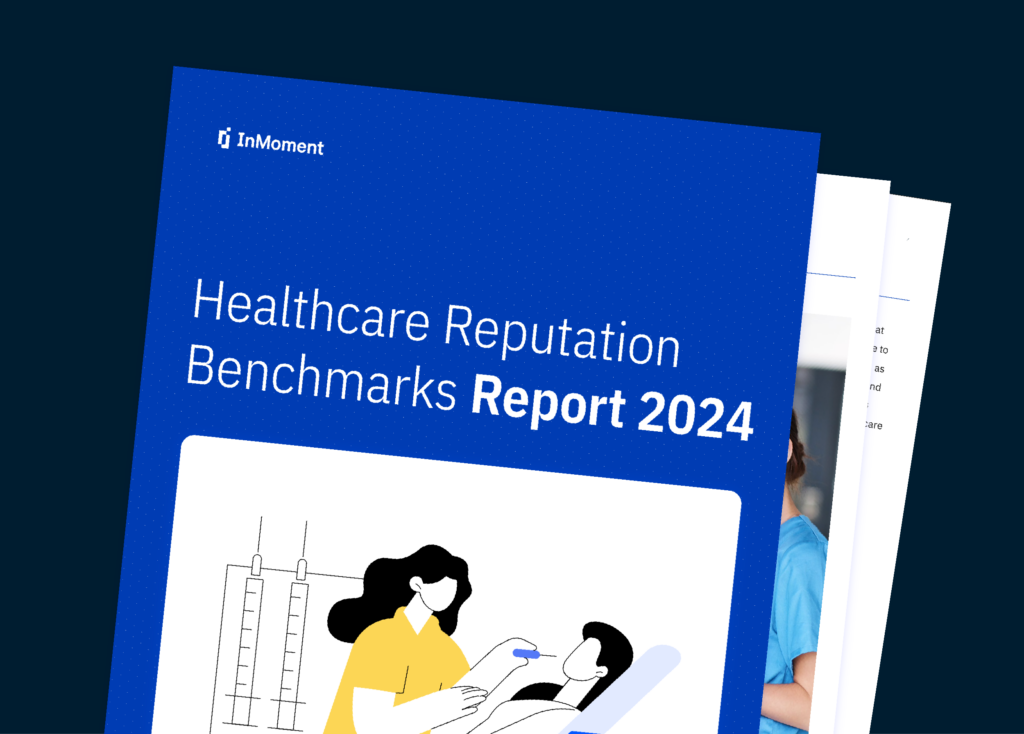Online Reputation Management for Doctors: Attract New Patients & Boost Your Practice
Your online reputation as a doctor plays a crucial role in attracting new patients and building trust. Managing reviews, maintaining accurate listings, and engaging with patients online are key strategies to ensure a positive digital presence and continued practice growth.
Your online reputation as a doctor can influence how patients perceive you before they even step foot in your office. We’ve all been there—checking reviews, browsing social media profiles, and searching Google to find the right healthcare provider. It’s no different for your patients. A well-managed online presence isn’t just about avoiding bad reviews; it’s about proactively building trust and attracting new patients.
But how do you stay on top of it all when your focus is on patient care?
What is Online Reputation Management for Doctors?
Online reputation management for doctors is the process of monitoring and controlling what patients see when they search for you or your practice online. It includes managing patient reviews, ensuring the accuracy of your online listings, engaging with patients on social media, and maintaining high visibility in search results.
In a nutshell, reputation management is about shaping the narrative around your practice. A well-executed strategy helps you promote positive reviews, address negative feedback in a constructive way, and ensure that potential patients see you as a trusted and reliable healthcare provider.
Why is doctor reputation management so important?
Your online presence can influence whether patients choose your practice over the competition. With an estimated 94% of healthcare patients saying they use online reviews as a first step in choosing a doctor, having a solid strategy for managing your digital reputation can significantly impact your success.
What are the Key Factors that Shape a Doctor’s Online Reputation?
Several factors come together to form a doctor’s online reputation, and understanding these elements can help you actively shape how you’re perceived online. Let’s break them down:
- Patient Reviews: Online reviews are a critical component of your reputation. Patients often rely on reviews when selecting a healthcare provider, and negative comments can significantly affect a doctor’s ability to attract new patients. The key is not just to collect positive reviews but also to respond appropriately to negative ones.
- Accurate Online Listings: Ensuring that your practice’s contact details, office hours, and services are correct on platforms like Google, Healthgrades, or Yelp is essential. Inconsistent or outdated information can confuse potential patients and harm your credibility.
- Social Media Presence: While not every doctor is active on social media, having a presence where you can engage with patients and share health-related information builds trust. Patients appreciate transparency and accessibility, and social media offers a direct line of communication.
- Search Engine Visibility: When someone searches for a doctor in your specialty, how often does your name come up? Optimizing your website and listings for local SEO ensures you’re easy to find when patients are researching their options.
Each of these factors plays a role in how current and future patients view your practice online, so it’s important to maintain them.
Why Is Doctor Review Management So Important?
If there’s one thing that can make or break your online reputation, it’s patient reviews. Doctor review management involves monitoring, collecting, and responding to reviews across platforms like Google, Facebook, Yelp, Healthgrades, and other healthcare-specific sites.
So why is this so important? Because today’s patients trust online reviews almost as much as personal recommendations. When a patient leaves a review, it becomes part of your digital footprint. Good reviews act as endorsements for your practice, but bad reviews can raise red flags for prospective patients.
What makes review management essential is how you handle these reviews—particularly the negative ones. When done correctly, responding to patient concerns in a thoughtful and timely manner shows that you care about their experience. This can help diffuse the impact of a negative review and even turn a frustrated patient into a loyal one.
Failing to engage with reviews, on the other hand, can signal to patients that their feedback doesn’t matter. This can not only damage your online reputation but also affect patient retention and satisfaction.
What Are the Benefits of Doctor Reputation Management?
Investing in reputation management for doctors offers a variety of benefits that can directly impact your practice’s growth, patient retention, and overall success. Let’s look at some of the key advantages:
- Attracting New Patients: A strong online reputation helps you stand out from the competition. Patients searching for a new healthcare provider will often choose the one with the most positive reviews and well-maintained online presence.
- Building Patient Trust: Trust is essential in healthcare. A doctor with a reputation for responding to patient concerns and maintaining professionalism online will inspire confidence in prospective patients.
- Improving Patient Retention: Reputation management isn’t just about attracting new patients—it’s also about keeping the ones you have. When patients see that their feedback is taken seriously, they’re more likely to stay loyal to your practice.
- Enhancing Professional Credibility: Your online reputation can establish you as a leading provider in your field. A combination of positive reviews, accurate listings, and patient engagement builds your credibility both with patients and within the medical community.
- Competitive Edge: Effectively managing your online reputation offers valuable insights into patient experiences, helping you identify opportunities to improve the customer experience in healthcare services you provide.
By focusing on these benefits, you can strengthen your practice’s foundation and continue to grow your patient base in a sustainable way.

How to Manage Your Doctor Reputation: Tips for Success
Managing your online reputation doesn’t have to be complicated. Here are some straightforward tips to help you stay on top of it:
- Respond to All Reviews: Acknowledge both positive and negative reviews. For positive ones, thank the patient for their feedback. For negative reviews, respond professionally, address the issue, and offer to discuss it privately.
- Keep Your Listings Updated: Ensure that your practice information is accurate across all platforms. This includes your address, phone number, office hours, and services offered. Inconsistent details can hurt your credibility.
- Ask for Reviews: Don’t be afraid to ask satisfied patients to leave reviews. Happy patients are often willing to share their positive experiences but might need a gentle reminder.
- Engage on Social Media: While it’s not necessary to be constantly active, responding to patient comments or questions on social media shows that you’re accessible and care about your patients outside of the exam room.
- Monitor Regularly: Make sure you’re regularly checking review sites, social media, and your business listings for new feedback. Staying on top of what’s being said about you online is essential for proactive management.
- Use Data: Use analytics tools to track patient sentiment and monitor trends in your reviews. This can help you identify areas where your practice is excelling or where improvements might be needed.
Features to Look for in Doctor Reputation Management Software
Choosing the right reputation management software can streamline the entire process and make it much more manageable. Here are some features to consider when selecting a tool:
- Real-Time Review Monitoring: Look for software that tracks reviews from multiple platforms in real-time, so you never miss a new review.
- Automated Review Requests: A tool that can automatically prompt satisfied patients to leave reviews can help you build a steady stream of positive feedback.
- Response Automation: Some platforms offer response templates or AI-driven tools that help you quickly and professionally address reviews.
- Analytics & Reporting: Software that provides insights into review trends, patient sentiment, and overall performance can help you adjust your strategy accordingly.
- Listings Management: Ensure the tool helps you keep your practice’s information consistent across online directories. This reduces the risk of patients finding outdated or incorrect details about your practice.
By using the right software, you can make reputation management a seamless part of your practice’s daily operations, freeing up more time for patient care.

REPORT
2024 Healthcare Online Reputation Benchmarks Report
Pearl-Plaza’s 2024 Healthcare Reputation Benchmarks Report offers an in-depth look at the current state of online reviews for medical practices and how these reviews reflect the patient experiences people expect. The benchmarks serve as a valuable resource for healthcare providers aiming to assess their online reputation, set goals, make informed decisions, and enhance the overall patient experience.
Improve Online Reputation Management for Doctors with Pearl-Plaza
At Pearl-Plaza, we know just how critical it is for doctors to maintain a strong, positive online presence. That’s why we’ve developed advanced reputation management solutions designed specifically for healthcare providers. Our tools allow you to monitor patient feedback, respond to reviews, and optimize your online listings—all while saving you time.
With Pearl-Plaza, you’ll get access to everything you need to manage your reputation effectively, from automated review requests to detailed analytics on patient sentiment. Let us help you strengthen your practice’s reputation, attract new patients, and continue delivering the exceptional care your patients expect.
Ready to take control of your online reputation? Get started today with a reputation demo.





